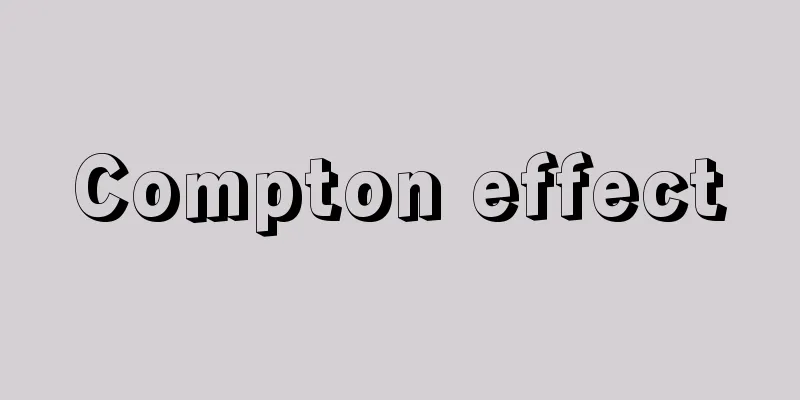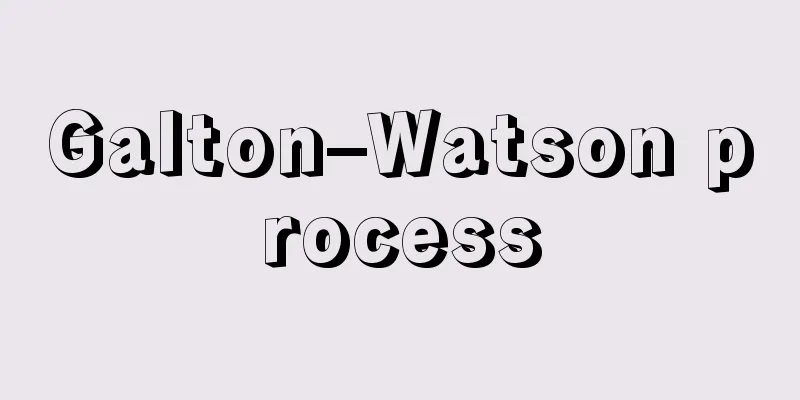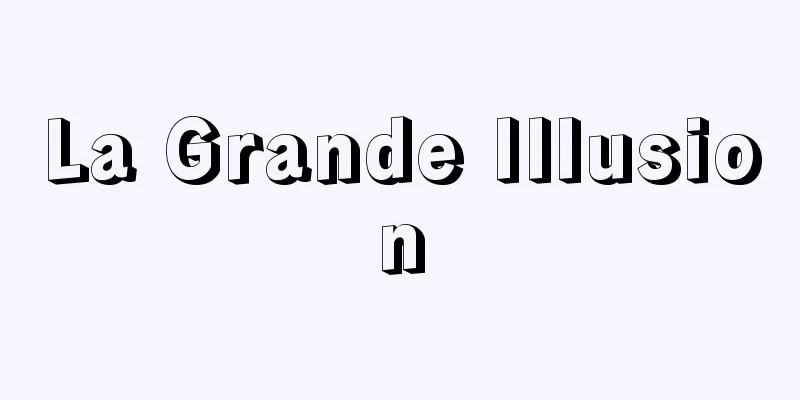Compton effect

|
The phenomenon in which the wavelength of X-rays scattered by electrons shifts to the longer wavelength side. The Compton effect is independent of the wavelength of the incident X-ray or the type of scatterer, but the larger the scattering angle and the greater the incident energy, the more pronounced the change in frequency becomes. This effect was discovered by Compton in 1922 in the scattering of X-rays by matter, and was understood as the scattering of photons by electrons in the matter. The Compton effect provided direct experimental evidence for the particle nature of light (the light quantum hypothesis at the time). Scattering when the energy of a photon is sufficiently small compared to the rest energy of an electron is called Thomson scattering, and the degree of scattering (total cross section) does not depend on the incident energy. The Compton effect is a scattering process due to the interaction between a photon and a charged particle, so it appears not only in the case of electrons but also in the case of other charged particles such as protons, but the effect is smaller as the mass of the charged particle increases, so it is most pronounced in the case of electrons. When a photon, which is a quantum of an electromagnetic field, is incident on a stationary electron with a frequency ν (energy is ν multiplied by the Planck constant h ) and is scattered in the direction of an angle θ to a frequency ν', applying the conservation of energy and momentum from the special theory of relativity, ν' is given as a function of ν and θ, and ν' is smaller than ν. Due to the relationship that the product of frequency and wavelength is the speed of light c , the amount of change in wavelength from λ to λ' is 2λ c sin 2 (θ/2). Here, λ c is called the Compton wavelength of the electron, and when the mass of the electron is m , λ c ≒ h / mc = 2.4×10 -12 m [Ryozo Tamagaki and Tsuneo Uematsu] "Quantum Mechanics 1, 2nd Edition, by Tomonaga Shinichiro (1977, Misuzu Shobo)" "Iwanami Basic Physics Series 5, Quantum Mechanics, by Hara Yasuo (1994, Iwanami Shoten)" [Reference] | |©Shogakukan "> Compton effect Source: Shogakukan Encyclopedia Nipponica About Encyclopedia Nipponica Information | Legend |
|
電子によって散乱されたX線の波長が長波長側に変化する現象。コンプトン効果は、入射X線の波長や散乱体の種類によらない一方、散乱角度が大きいほど、また振動数の変化としては入射エネルギーが大きいほど、顕著に現れる。この効果は、1922年コンプトンによって物質によるX線の散乱でみいだされ、物質中の電子による光子の散乱として理解された。コンプトン効果は、光の粒子性(当時の光量子仮説)に対する直接的な実験的根拠を与えた。光子のエネルギーが、電子の静止エネルギーに比して十分小さいときの散乱は、トムソン散乱といわれ、散乱の度合い(全断面積)は入射エネルギーによらない。コンプトン効果は、光子と荷電粒子の間の相互作用による散乱過程であるから、電子に限らず陽子など他の荷電粒子の場合にも現れるが、効果は荷電粒子の質量が大きいほど小さいので、電子の場合がもっとも顕著に現れる。電磁場の量子である光子(フォトン)が振動数ν(エネルギーはνにプランク定数hを乗じた値)で静止している電子に入射し、角度θの方向に散乱されて振動数ν'になった場合、特殊相対性理論によるエネルギーと運動量の保存則を適用すると、ν'がνとθの関数として与えられ、ν'はνより小さい。振動数と波長の積が光速cとなる関係によって、波長がλよりλ'に増大する変化量は2λcsin2(θ/2)となる。ここで、λcは電子のコンプトン波長とよばれ、電子の質量をmとするとき [玉垣良三・植松恒夫] 『朝永振一郎著『量子力学1』第2版(1977・みすず書房)』▽『原康夫著『岩波基礎物理シリーズ5 量子力学』(1994・岩波書店)』 [参照項目] | |©Shogakukan"> コンプトン効果 出典 小学館 日本大百科全書(ニッポニカ)日本大百科全書(ニッポニカ)について 情報 | 凡例 |
>>: Compton - Arthur Holly Compton
Recommend
Miyake Shosai
A Confucian scholar in the mid-Edo period. His gi...
Ootaro - Ootaro
...It is a fish that changes its name as it grows...
Chinese tea
Tea produced in China. Drinking, cultivating, and...
Jin-shu; Chin-shu
An official history of the Jin dynasty compiled by...
Voice dialogue - Onsei-wa
...If the dictionary has a vocabulary of around 2...
The tenth place
[1] (Noun) ① A Buddhist term. A classification of ...
Louvre Museum - Musée National du Louvre
The Louvre is one of the world's largest nati...
Gaius Lucilius
An ancient Roman poet and the founder of satirica...
Leucorrhea - White leucorrhea
〘noun〙 Secretions from the female genitals. There ...
Amor
In Greek mythology, Eros was the god of love. In ...
Komissarov, VN (English spelling) KomissarovVN
…When translating from European languages to Ja...
Calamagrostis
…A perennial grass of the grass family (illustrat...
Foreign official - Gaikokukan
〘Noun〙 In the early Meiji period, this was an offi...
Judicial Commissioner - Shihoiin
In civil proceedings at summary courts, judicial ...
Amabe - Fishermen's Club
One of the Shinabe in the pre-Taika period. Also ...









